The Queens Public Library (QPL), also known as the Queens Borough Public Library and Queens Library (QL), is the public library for the borough of Queens, and one of three public library systems serving New York City. It is one of the largest library systems in the world by circulation, having loaned 13.5 million items in the 2015 fiscal year, and one of the largest in the country in terms of the size of its collection. According to its website, the library holds about 7.5 million items, of which 1.4 million are at its central library in Jamaica, Queens. It was named "2009 Library of the Year" by Library Journal.
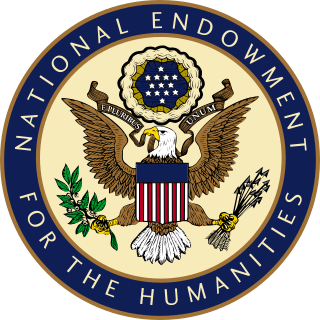
The National Endowment for the Humanities (NEH) is an independent federal agency of the U.S. government, established by the National Foundation on the Arts and the Humanities Act of 1965, dedicated to supporting research, education, preservation, and public programs in the humanities. The NEH is housed at 400 7th St SW, Washington, D.C. From 1979 to 2014, NEH was at 1100 Pennsylvania Avenue, N.W., Washington, D.C. in the Nancy Hanks Center at the Old Post Office.

Library and Archives Canada is the federal institution, tasked with acquiring, preserving, and providing accessibility to the documentary heritage of Canada. The national archive and library is the fifth largest library in the world. The LAC reports to the Parliament of Canada through the Minister of Canadian Heritage.
In library and archival science, digital preservation is a formal endeavor to ensure that digital information of continuing value remains accessible and usable. It involves planning, resource allocation, and application of preservation methods and technologies, and it combines policies, strategies and actions to ensure access to reformatted and "born-digital" content, regardless of the challenges of media failure and technological change. The goal of digital preservation is the accurate rendering of authenticated content over time. The Association for Library Collections and Technical Services Preservation and Reformatting Section of the American Library Association, defined digital preservation as combination of "policies, strategies and actions that ensure access to digital content over time." According to the Harrod's Librarian Glossary, digital preservation is the method of keeping digital material alive so that they remain usable as technological advances render original hardware and software specification obsolete.
Artstor is a nonprofit organization that builds and distributes the Digital Library, an online resource of more than 2.5 million images in the arts, architecture, humanities, and sciences, and Shared Shelf, a Web-based cataloging and image management software service that allows institutions to catalog, edit, store, and share local collections.
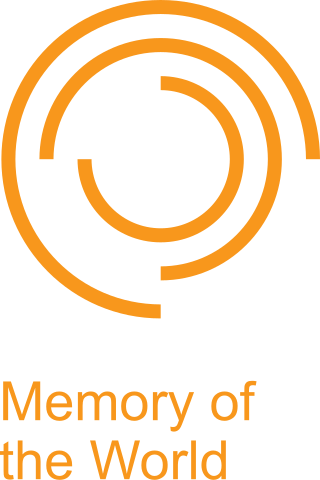
UNESCO's Memory of the World (MoW) Programme is an international initiative launched to safeguard the documentary heritage of humanity against collective amnesia, neglect, the ravages of time and climatic conditions, and willful and deliberate destruction. It calls for the preservation of valuable archival holdings, library collections, and private individual compendia all over the world for posterity, the reconstitution of dispersed or displaced documentary heritage, and increased accessibility to, and dissemination of, these items.
The California Digital Library (CDL) was founded by the University of California in 1997. Under the leadership of then UC President Richard C. Atkinson, the CDL's original mission was to forge a better system for scholarly information management and improved support for teaching and research. In collaboration with the ten University of California Libraries and other partners, CDL assembled one of the world's largest digital research libraries. CDL facilitates the licensing of online materials and develops shared services used throughout the UC system. Building on the foundations of the Melvyl Catalog, CDL has developed one of the largest online library catalogs in the country and works in partnership with the UC campuses to bring the treasures of California's libraries, museums, and cultural heritage organizations to the world. CDL continues to explore how services such as digital curation, scholarly publishing, archiving and preservation support research throughout the information lifecycle.
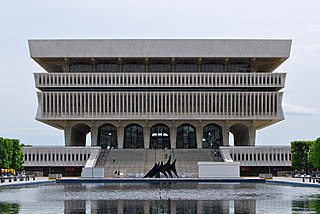
The New York State Museum is a research-backed institution in Albany, New York, United States. It is located on Madison Avenue, attached to the south side of the Empire State Plaza, facing onto the plaza and towards the New York State Capitol. The museum houses art, artifacts, and ecofacts that reflect New York’s cultural, natural, and geological development. Operated by the New York State Education Department's Office of Cultural Education, it is the oldest and largest state museum in the US. Formerly located in the State Education Building, the museum now occupies the first four floors of the Cultural Education Center, a ten-story, 1,500,000-square-foot (140,000 m2) building that also houses the New York State Archives and New York State Library.

SBP is a nonprofit, disaster relief organization. After temporarily volunteering in St. Bernard Parish, Louisiana after Hurricane Katrina, Liz McCartney and Zack Rosenburg returned permanently in March 2006 and founded the project. The organization eventually expanded to include offices in Baton Rouge, Louisiana, Joplin, Missouri, Columbia, South Carolina, New Jersey, New York, and West Virginia. By August 2022, SBP's national impact included assistance to 5,500 families, including the rebuilding of over 1,200 homes, including 600 in New Orleans. They have collaborated extensively with Toyota and Americorps. As a result of its accomplishments, the organization and its founders have been recognized by Senator Mary Landrieu, CNN, and President Barack Obama.
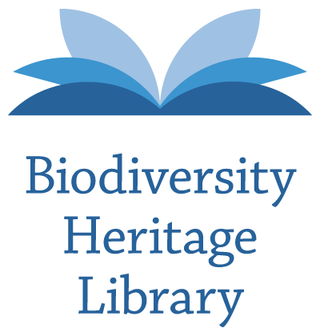
The Biodiversity Heritage Library (BHL) is the world’s largest open access digital library for biodiversity literature and archives. BHL operates as a worldwide consortium of natural history, botanical, research, and national libraries working together to address this challenge by digitizing the natural history literature held in their collections and making it freely available for open access as part of a global “biodiversity community.” The BHL consortium works with the international taxonomic community, publishers, bioinformaticians, and information technology professionals to develop tools and services to facilitate greater access, interoperability, and reuse of content and data. BHL provides a range of services, data exports, and APIs to allow users to download content, harvest source data files, and reuse materials for research purposes. Through taxonomic intelligence tools developed by Global Names Architecture, BHL indexes the taxonomic names throughout the collection, allowing researchers to locate publications about specific taxa. In partnership with the Internet Archive and through local digitization efforts, BHL's portal provides free access to hundreds of thousands of volumes, comprising over 59 million pages, from the 15th-21st centuries.

Blinken Open Society Archives is an archival repository and laboratory that aims to explore new ways of assessing, contextualizing, presenting, and making use of archival documents both in a professional and a consciously activist way. It was founded by George Soros in 1995, and opened in 1996 as a department of the Central European University. Originally called simply Open Society Archives (OSA), in 2015 it was renamed Vera and Donald Blinken Open Society Archives after receiving a major donation from the couple.
Loki K. Gordon is an artist and founder and co-owner of Marrakech Henna Art Cafe in Marrakech, Morocco. She is also founder and president of Six Degrees Consortium, a 501(c)3 organization dedicated to the creation and dissemination of art that addresses compelling social issues and that builds bridges across cultures. She is also Founder and President of El Fenn Maroc, a NGO based in Marrakech, Morocco and dedicated to supporting artists in Morocco. She is known for The Katrina Collection, her series of mixed media assemblages which incorporates debris from the massive hurricane which ravaged the Mississippi Gulf Coast in August 2005, for The Labat Project, a piece of which has been acquired by the Smithsonian Institution, and for Six Degrees: West to East" which addresses the gulf between the western and Islamic worlds.
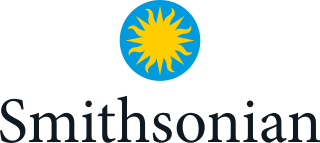
Smithsonian Libraries and Archives is an institutional archives and library system comprising 21 branch libraries serving the various Smithsonian Institution museums and research centers. The Libraries and Archives serve Smithsonian Institution staff as well as the scholarly community and general public with information and reference support. Its collections number nearly 3 million volumes including 50,000 rare books and manuscripts.
The New York Art Resources Consortium (NYARC) consists of the research libraries of three leading art museums in New York City: The Brooklyn Museum, The Frick Collection, and The Museum of Modern Art. With funding from The Andrew W. Mellon Foundation, NYARC was formed in 2006 to facilitate collaboration that results in enhanced resources for research communities. Called a groundbreaking partnership, NYARC also provides a framework for collaboration among art research libraries.

Howard Philip Milstein is an American businessman. Milstein is chairman, president and chief executive officer of New York Private Bank & Trust and its operating bank, Emigrant Bank. Emigrant is the country's 9th largest privately run bank and the largest family-owned private bank. Milstein is founding chairman of the merchant bank FriedbergMilstein. He is a significant investor in golf-related businesses and was named one of the top 25 most powerful people in golf by Golf Inc. He served as chairman of the New York State Thruway Authority until November 2014 and led the procurement process for the replacement of the Tappan Zee Bridge.
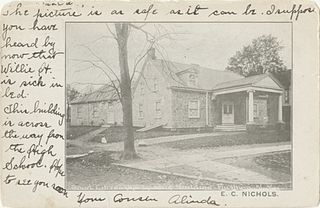
The Queens Memory Project is a community archiving program which aims to record and preserve contemporary history across the New York City borough of Queens. Community archives are created in response to needs defined by the members of a community, who may also exert control over how materials are used. The project is a collaborative effort between Queens College, City University of New York and Queens Public Library that was initially funded in 2010 through a grant from the Metropolitan New York Library Council (METRO). Materials in the archive are made accessible to the public through a website which contains oral history interviews and photographs documenting the lives of Queens residents. The stories and images are presented alongside digitized historical photographs, maps, news clippings and other archival records. The goal of the project is to allow visitors to the site to view otherwise scattered archival materials and personal stories in a searchable database of collective memory representing the borough of Queens.

Occupy Sandy was an organized relief effort created to assist the victims of Hurricane Sandy in the northeastern United States. Like other Occupy Movement offshoots, such as Occupy Our Homes, Occupy University, Occupy the SEC, and Rolling Jubilee, Occupy Sandy was made up of former and present Occupy Wall Street protesters, other members of the Occupy movement, and former non-Occupy volunteers. The effort worked in partnership with many local community organizations in New York City and New Jersey and has focused on mutual aid in affected communities rather than charity, and long-term rebuilding for more robust, sustainable neighborhoods.

The Medical Heritage Library (MHL) is a digital curation collaborative among several medical libraries which promotes free and open access to quality historical resources in medicine. The MHL is currently digitizing books and journals and is working to expand to the digitization of archival materials and still images. In 2010, the MHL began digitizing titles, mainly monographs, in a variety of medical history and related fields including chemistry, nursing, dentistry, audiology, physiology, psychology, psychiatry, biological science, hydrotherapy, weather, veterinary medicine, gardening, physical culture, and alternative medicine chosen for their scholarly, educational, and research value. Since the inception of the project, materials in audio and video formats have been added to the collection.
The Activist Women's Voices collection is an oral history project of 35 women activists who worked in community-based organizations in the New York City area. The project covers the period from 1995 to 2000 and was a project of The City University of New York (CUNY) Graduate Center's Women's Studies Program and Center for the Study of Women. The digitized collection is made up of women from a diverse cross-section of cultural and ethnic social service organizations including activists from Arab-American, Haitian, Hispanic, African-American, and Asian-American communities. It is held at the Mina Rees Library, within the Graduate Center's B. Altman and Company Building.













